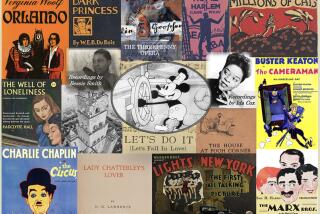A new tune
- Share via
More than 100 years ago, Congress gave composers the right to demand royalties from those who played or sang their musical works in public. That 1897 law would later help songwriters (along with their publishers) collect a percentage of the revenue from radio stations that broadcast their tunes over the air. But when the radio industry was developing early in the 20th century, there was no copyright protection for the sound-recording business that was emerging around the same time. Such rights were not made part of federal law until 1972 (in response to vinyl record bootlegging). The result was a strange double standard that persists to this day: Radio stations have to pay composers but not performers.
This double standard applies only to local broadcasters, not stations that stream songs online, through cable TV or from satellites. That gives the AM and FM dials an advantage over their digital competitors. Broadcasters defend the exemption, arguing that radio airplay gives the biggest boost to music sales. That may be true, but the value is slipping as CD sales plummet. With labels and artists relying less on selling songs and more on monetizing the activities around them, it’s hard to defend the free pass awarded to one of the most profitable businesses built on music.
Today, the House Judiciary Committee’s panel on copyrights is expected to consider a bill (HR 4789) that would end radio’s exemption. Introduced by Rep. Howard L. Berman (D-Valley Village) and five others, it would require broadcasters with less than $1.25 million in annual revenue to pay no more than $5,000 in annual royalties, and cap public broadcasters’ fees at $1,000. All other broadcasters would be left to negotiate deals with the royalty collectives representing labels and artists or else have the rate set by a panel of federal arbitrators.
It’s a simple measure that strikes a blow for fairness, not just to artists and labels but to webcasters and other music services that compete with radio. Still, it’s not clear how the constitutional goal of promoting “progress of science and useful arts” would be served by creating a windfall for record companies and musicians. A better approach would phase in royalties gradually and include other provisions that promote public access to music -- for example, by speeding the entry of musical works into the public domain and ensuring that reasonable personal uses of music aren’t denied through the labels’ use of electronic locks. Intellectual property law is supposed to balance public and private interests -- a feature that Congress often forgets when responding to copyright holders.
More to Read
The biggest entertainment stories
Get our big stories about Hollywood, film, television, music, arts, culture and more right in your inbox as soon as they publish.
You may occasionally receive promotional content from the Los Angeles Times.








